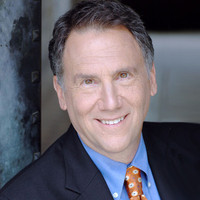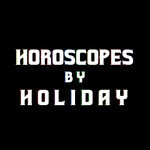Everybody knows the best question to ask in a job interview.
"Do you validate?"
Even if you carried your skateboard into the interview, making it clear you never went near the parking garage, asking this question shows you are definitely cheap and probably a chiseler — valuable qualities for any candidate, especially in banking or politics. That's also why you should also ask if the company offers consolation prizes for unsuccessful job candidates, like logo beer koozies or a monogrammed stadium seats.
(Be sure to tell the recruiter that even if you don't get the job, you'll be willing to come around at holiday time if a free turkey is in the offing.)
According to "The Best Questions to Ask in an Interview to Leave a Remarkable Impression," a recent online article by Jenny Marchal on Lifehack, there are quite a few more questions that you could and should ask, especially at the end of the interview.
That's right! Just when you're thinking about that apres-interview brewski is the time to be peppering the interviewer with questions. Why? Because, says Marchal, "if you're unprepared with interesting or information-seeking questions, you may come across as disinterested and unenthusiastic about the job."
This is an impression you definitely don't want to leave, mostly because it's 110 percent accurate.
According to Marchal, you need to prepare "at least two potentially smart questions." Potentially or even slightly smart is a high bar for you. Fortunately, one of your questions is obvious. The end of an hour-long interview is the perfect time to ask the interviewer, "What's your name, anyway?"
Your No. 2 question will be "How did I do? I'm totally psyched about working here at Facebook." This remarkable question works with any company, as long as it isn't Facebook. (At Facebook, you ask, "How did I do? I'm totally psyched about working here at Google.")
As for other questions to consider, Marchal breaks them down by category. For example, there are "questions to find out about the company."
"Can you tell me a bit more about the culture of the company?" is one suggestion, as is, "How does this company define and measure success?" These strike me as fairly generic, so I recommend you get right to the nitty-gritty, with questions like: "I take a lot of vacations. How many sick days can I take before I have to use vacation days?" Or, "I am an out-of-the-box thinker. Is there any reason I couldn't work naked?"
"Questions to find out about the role" may not make a remarkable impression, but they are a good way to learn more about the job and to pinpoint the exact reasons you don't want it.
For example, you could take the classic interview question, "Where do you want to be in five years?" and turn it on the recruiter. "Do you think you'll still be interviewing losers like me for dead-end jobs at this doomed company in five years?"
This is a good question because you can eat your tuna sandwich and catch up on email while the recruiter breaks down sobbing.
You are also asked to consider this line of questioning: "Is this a new position? If not, what did the previous employee go on to do?"
If you learn that the previous employee went moo-moo-ga-ga and is now a senior executive at the Arkham Asylum for the Criminally Insane, congratulations. This is definitely the job for you.
In the slight chance that you are uncertain about how poorly you did in the interview, you will want to ask "questions to further clarify your suitability for the role."
"Do you have any reservations about my qualifications?" is Marchal's suggestion, though I recommend you be more specific by adding, "Which of the lies in my resume was the least believable and which was the funniest?"
If the answer to both questions is "astronaut," you'll know your resume is a winner.
The final group of questions concerns logistics. "You don't want to leave the interview wondering what is happening next," Marchal writes. This is hardly relevant for you; you know you'll be rejected. Still, it might be useful to know exactly when you will be rejected. So, go ahead and ask, "When is the anticipated starting date for this position?"
If the interviewer replies, "Jan. 32, 2045," you know you've left that remarkable impression and can go back to your current job and immediately resign.
Interviewing is hard work. And before you start your new job, you'll want to rest up.
Bob Goldman was an advertising executive at a Fortune 500 company, but he finally wised up and opened Bob Goldman Financial Planning in Sausalito, California. He now works out of Bellingham, Washington. He offers a virtual shoulder to cry on at bob@bgplanning.com. To find out more about Bob Goldman, and read features by other Creators Syndicate writers and cartoonists, visit the Creators Syndicate webpage at www.creators.com.






View Comments